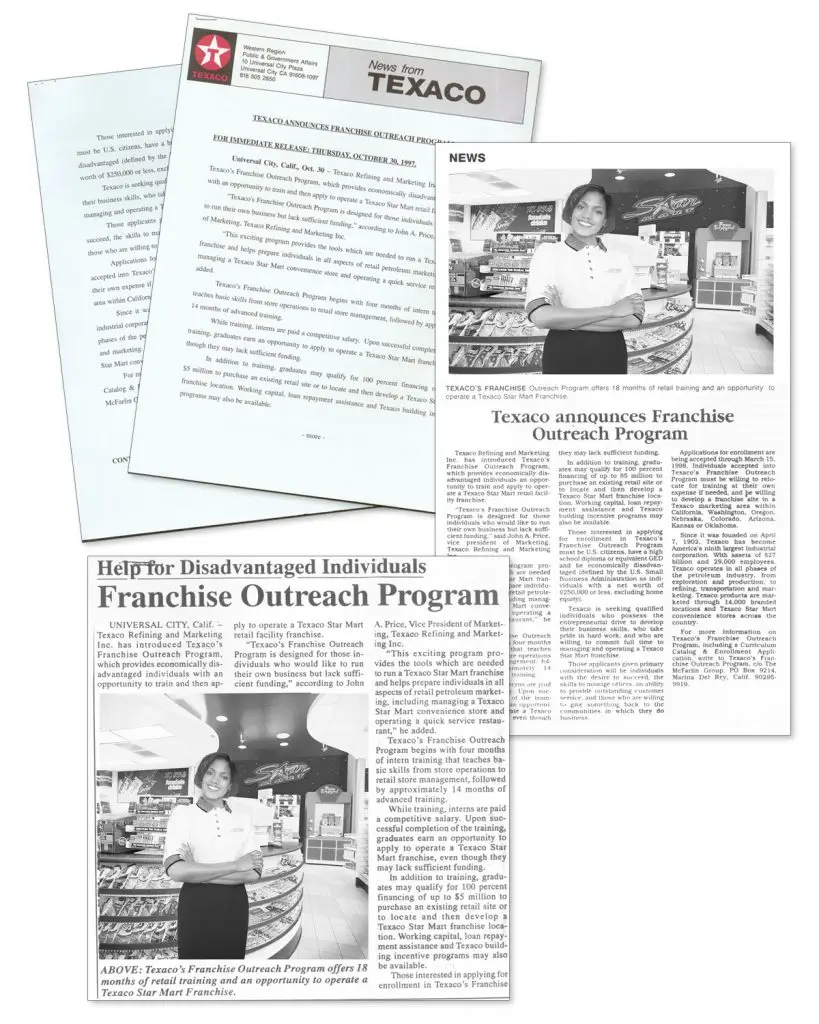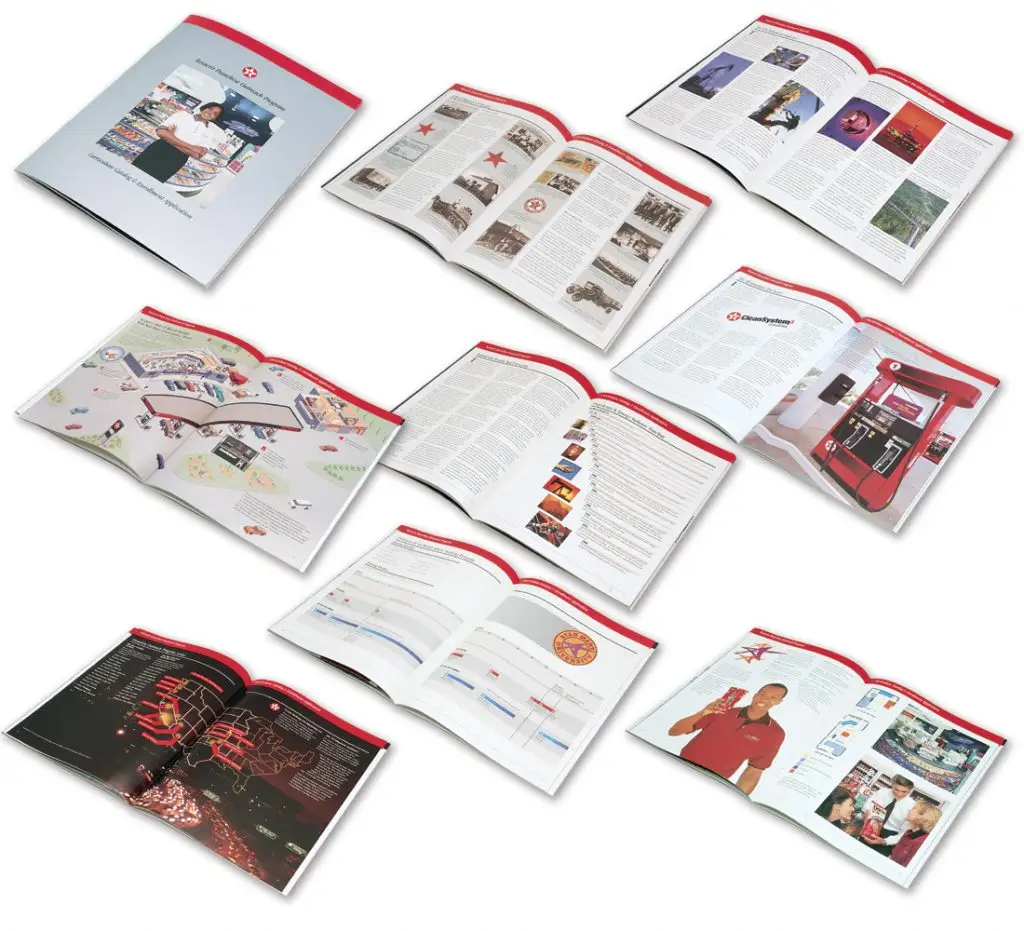Texaco & Shell Franchise Outreach Program
Texaco launches an initiave to improve the composition of its network of independent retailers.
Spurred om by a record $173 Million Affirmation Action Lawsuite.
Texaco agrees to improve the composition of its network of independent retailers to better represent the communities they serve.
We developed and managed this program for Texaco. The program was later extended to Shell.

In business, it is one thing to create short-term solutions that are ‘topical treatments’ that fix current problems without addressing the long-term implications. It is quite another to create long-term, methodical solutions that complement and align with business objectives and therefore become fully integrated into the day-to-day operations.
Objective
- Bring in new independent retailers who are socially and economically disadvantaged;
- Align with business objectives; and
- Promote and expand the Texaco convenience-store franchise.

Program Implmentation

We designed a multi-faceted program that would solicit individuals who were socially and economically disadvantaged, screen them for basic business skills and entrepreneurial aptitude, provide them with retail petroleum and c-store operations training, and assist them to establish their own business with a Texaco convenience store franchise. I worked closely with a cross-functional team within Texaco to ensure that the program would have support of the whole organization and be integrated into the corporate operational structure.
We assembled, categorized and summarized all domestic news articles covering issues of diversity in the workplace for management review.
ROAD SHOW & POLICIES
I formed a “Speakers’ Bureau” and scheduled a national “Road Show” to promote the program in various communities across the country. I developed and produced a 30-minute audio/video exhibition for this promotion along with a Policies & Procedures document ensuring program consistency.

We coordinated with Texaco regional organizations to arrange for program applicants to be tested and interviewed by regional personnel. I also managed day-to-day administrative needs and maintained a database that kept track of the status of all program applicants.
At the end of the 18-month extensive in-classroom and on-the-job training, the program provided business financing with special terms for program graduates to start their own business. This would ensure that the business would not be adversely impacted by short-term cash flow difficulties during the first couple of years of operation.





